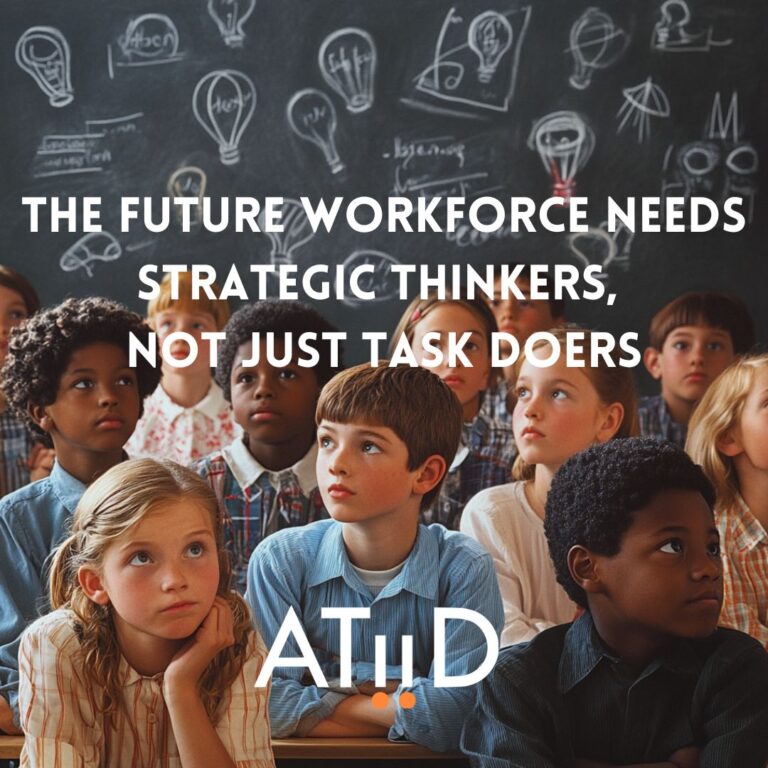The Future Workforce Needs Strategic Thinkers, Not Just Task Doers
I remember the first time I watched an AI program complete in seconds what would have taken me hours. It was both fascinating and terrifying. As I sat there watching lines of code transform into a finished report, I couldn’t help but wonder: what will be left for us humans to do?
This question haunts boardrooms and classrooms alike. AI and automation are reshaping our workplace landscape, methodically claiming the repetitive, time-consuming tasks that once filled our calendars. On the surface, this seems like a blessing, finally freeing us to focus on bigger, more strategic initiatives. But here’s the twist in our technological tale: the future of work isn’t just about efficiency. It’s about thinking differently.

AI Is Doing the Tasks, So What's Left for Us?
Picture this: You’re sitting at your desk while an AI assistant schedules meetings, drafts emails, and analyzes last quarter’s data. It’s handling all the tasks you used to dread. But now what? What value do you bring?
AI excels at crunching numbers, analyzing data, and powering through repetitive work. Customer service chatbots answer questions round the clock, and data entry happens automatically. But there’s a boundary that AI struggles to cross—it can’t think creatively, make ethical judgments, or understand the nuanced big picture the way humans can.
Consider these scenarios:
- AI can predict stock market trends, but a human investor must decide where to put money based on global events and long-term strategy.
- AI can diagnose medical conditions from images, but doctors must determine the best treatment for each patient.
- AI can write marketing copy, but human strategists must create brand messaging that forms genuine emotional connections with customers.
- AI is like having a potent tool in your workshop—but it still needs a skilled craftsperson to wield it effectively, ask the right questions, and apply its capabilities with purpose and vision.
A comprehensive study from McKinsey & Company predicts that as automation becomes more pervasive across industries, the demand for higher-level cognitive skills—particularly critical thinking and strategic decision-making—will increase dramatically. (mckinsey.com)
Schools Need to Start Teaching Strategic Thinking
I recently visited a classroom where children were still memorizing facts, and they could easily ask a voice assistant. It struck me as preparing students for a world that no longer exists.
Our educational dilemma lies herein: Most schools aren’t equipping students with this new reality. Traditional education has long prioritized memorization, standardized tests, and following prescribed processes. But in a world where AI can research topics, analyze data, and even write reports, simply knowing information isn’t enough anymore.
What tomorrow’s workforce truly needs to learn is:
- How to think critically and question assumptions, even when they come from seemingly authoritative AI systems
- How to analyze AI-generated insights instead of accepting them at face value
- How to solve problems creatively and make strategic decisions that machines cannot
- How to leverage AI tools as partners rather than viewing them as competitors
There are signs of progress on this front. Take Sam Houston State University, which is pioneering new AI and technology-focused programs specifically designed to prepare students for a job market transforming before our eyes. (houstonchronicle.com)
The essential shift is clear: Schools must evolve from teaching students what to think to teaching them how to think.
Companies Need to Empower Employees to Think, Not Just Work
The journey toward an AI-empowered workforce isn’t solely about individual skill development—it’s equally about creating organizational environments that nurture and reward strategic thinking.
I once consulted for a company that installed cutting-edge AI systems but maintained their rigid approval hierarchies. The result? Their expensive AI investments sat largely unused, with employees still routing decisions through managers who became bottlenecks in the process.
Many businesses still operate with management philosophies from a bygone era, where employees function as task executors rather than decision-makers. In our AI-integrated world, this approach creates friction rather than flow. Today’s employees need the autonomy to think, experiment, and make informed decisions without constant oversight.
Micromanagement Kills Productivity in an AI World
Consider these counterproductive scenarios:
- If a manager insists on reviewing every AI-generated report before action can be taken, they inadvertently negate the speed advantages AI was implemented to create.
- If employees don’t feel trusted to make decisions based on AI insights, they default to seeking managerial approval rather than developing their own strategic thinking.
- If organizational processes remain inflexible, the company loses its ability to adapt quickly in rapidly evolving business environments.
The hard truth is that a culture of micromanagement and rigid control will effectively neutralize the potential benefits of AI and automation.
Instead, forward-thinking companies are reimagining their management approach to:
- Foster independent decision-making, enabling employees to translate AI insights into timely action
- Recognize and reward critical thinking and problem-solving, not just efficiency metrics
- Invest in continuous AI training, helping employees become more sophisticated in their strategic use of these tools
- Create a culture where innovation thrives and employees feel safe exploring new approaches
Technology giant IBM exemplifies this philosophy in practice. They’ve implemented AI-powered workforce planning tools to drive data-informed HR decisions, while simultaneously trusting their employees to apply AI insights strategically rather than relying on top-down directives. (shrm.org)
So, What's Next?
I imagine a future workforce where value isn’t measured by task completion speed or information retention, but by the quality of thinking and decision-making. It’s a future where humans and AI form a powerful partnership—with AI handling the routine, and humans providing the vision.
As this future unfolds:
- Educational institutions must prioritize critical thinking, problem-solving, and strategic decision-making as core components of their curriculum.
- Organizations need to cultivate environments that empower employees to take initiative and think independently alongside their AI tools.
- Individual professionals should focus on developing their analytical, strategic, and innovative capabilities—the distinctly human skills that will distinguish them in an increasingly AI-driven job market.
The future belongs to strategic thinkers. The question now becomes: Are you ready to embrace a new way of thinking?
At ATiiD, we help businesses prepare for this future by integrating AI-driven solutions that empower teams to be more strategic, efficient, and forward-thinking. Ready to build a workforce that leads rather than follows? Contact us today to start the transformation.
